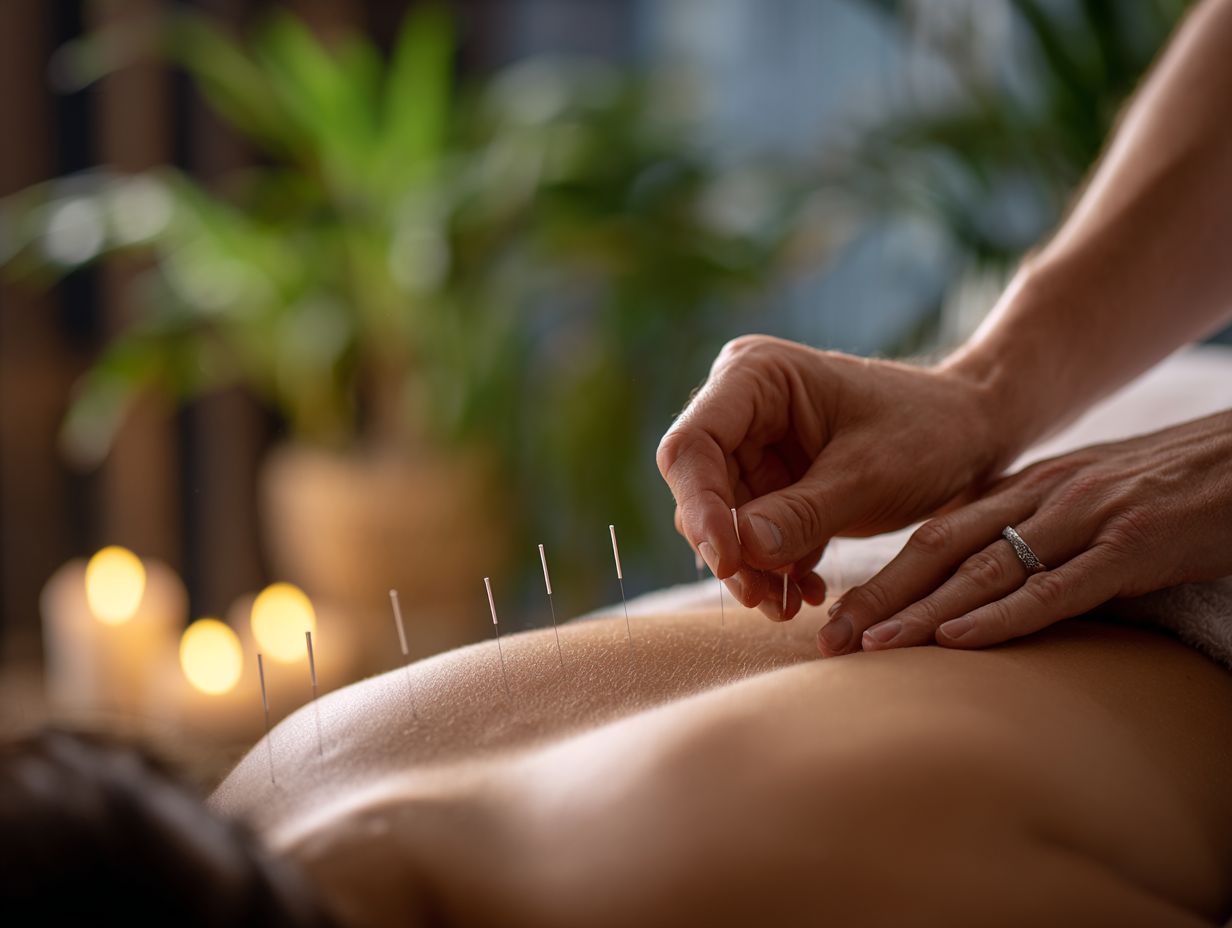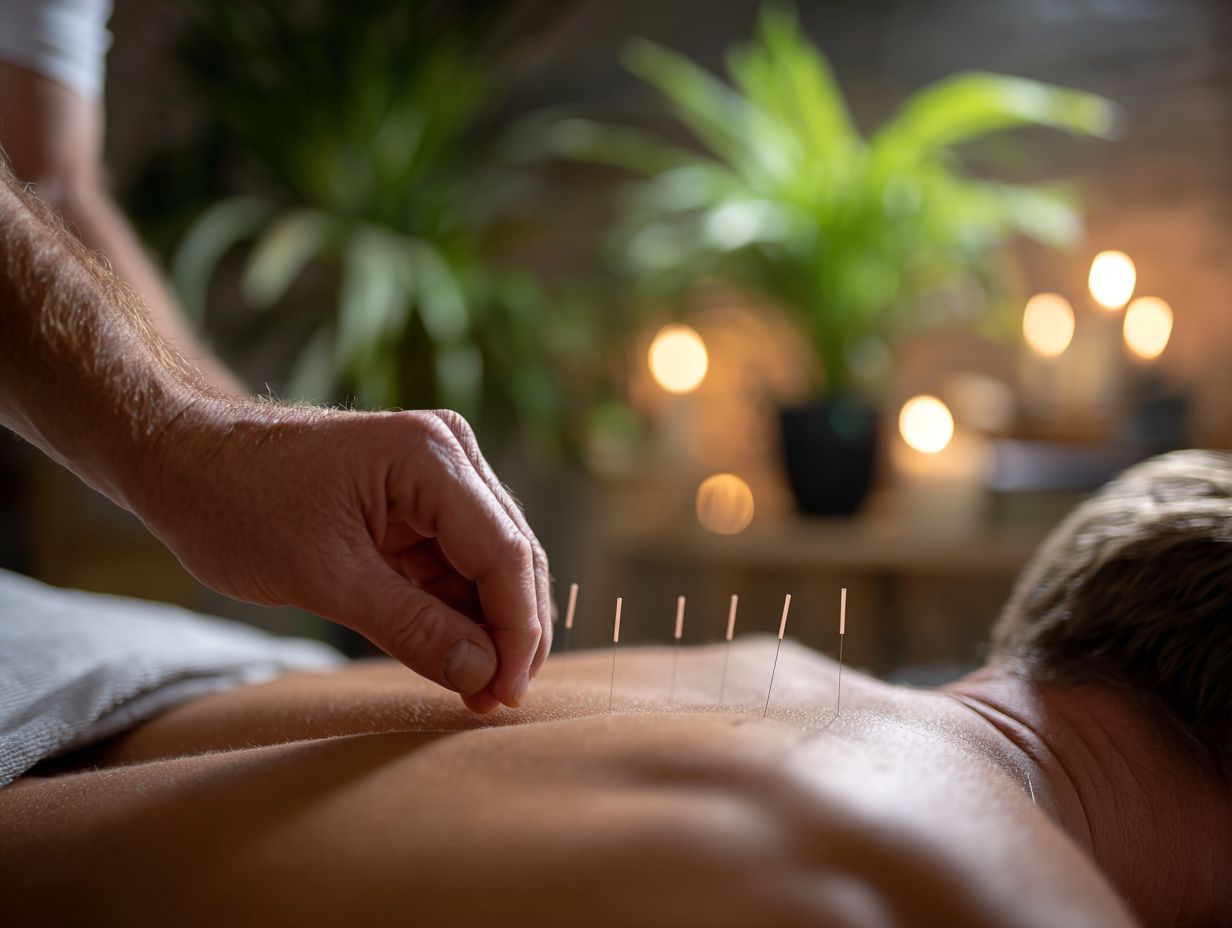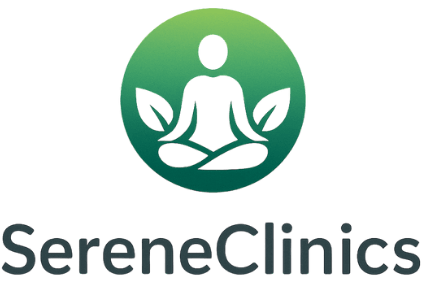Acupuncture’s Impact on the Immune System
Contents
- 1 Introduction to Acupuncture and the Immune System
- 2 Understanding the Immune System
- 3 Mechanisms of Acupuncture
- 4 Acupuncture and Immune System Research
- 5 Acupuncture and Immune Response
- 6 Clinical Studies on Acupuncture and Immunity
- 7 Acupuncture Techniques Relevant to Immune Health
- 8 Acupuncture’s Role in Autoimmune Disorders
- 9 Effects of Acupuncture on Inflammation
- 10 Acupuncture for Allergies and Respiratory Conditions
- 11 Psychological Effects of Acupuncture on Immunity
- 12 Future Directions in Research
- 13 Integrating Acupuncture into Conventional Treatments
- 14 Frequently Asked Questions
- 14.1 What is Acupuncture’s Impact on the Immune System?
- 14.2 How does Acupuncture support the immune system?
- 14.3 Can Acupuncture help prevent illnesses?
- 14.4 Is there scientific evidence supporting Acupuncture’s Impact on the Immune System?
- 14.5 How often should one undergo acupuncture to benefit the immune system?
- 14.6 Are there any negative effects linked to acupuncture and its ability to strengthen the immune system?
Introduction to Acupuncture and the Immune System

Acupuncture, a practice from Traditional Chinese Medicine, has received interest for its ability to improve immune function.
This article examines how acupuncture affects the immune system and how this method can help strengthen the body’s ability to fight illness.
Readers will learn about how the immune system functions, how acupuncture works, and how it can help with autoimmune disorders and inflammation.
With a focus on clinical studies and practical techniques, this exploration highlights acupuncture’s role in promoting overall health and well-being.
Key Takeaways:
- Acupuncture might improve immune function by activating different parts of the immune system, which may help the body respond better to infections and illnesses.
- Clinical studies indicate that acupuncture can reduce inflammation and alleviate symptoms in autoimmune disorders, offering a complementary approach to conventional treatments.
- Using acupuncture along with regular treatments can lead to better outcomes for respiratory problems and allergies. It can also help with mental health and lower stress, which can improve immune function.
History of Acupuncture
Its philosophical roots are based on the ideas of Qi (life energy) and the harmony of Yin and Yang.
Historical texts such as the Huangdi Neijing, or the Yellow Emperor’s Inner Canon, outline its principles and techniques. Influential figures like Sun Simiao contributed significantly to its development, promoting its use for various ailments.
In recent years, acupuncture has become more accepted in Western medicine. It is often included in health practices, pain management, and wellness programs, showing an increasing recognition of alternative treatments.
Understanding the Immune System
The immune system is a system of cells and proteins that protects the body from harmful germs, helping to keep us healthy. For a more detailed overview of how the immune system functions, you can refer to an informative article by Better Health. Additionally, understanding how various healing practices, such as naturopathy, can support immune health adds another layer to your knowledge.
Components of the Immune System
T-cells and B-cells are essential for spotting and fighting germs. T-cells, especially cytotoxic T-cells, directly kill infected cells, while helper T-cells support B-cells in producing antibodies.
B-cells, upon activation, become plasma cells that secrete antibodies, which neutralize toxins and mark invaders for destruction. Macrophages, an important part of the immune system, consume and break down germs, which helps to stimulate other immune cells.
Diagrams illustrating these interactions can clarify how the immune system functions. Data shows that the body produces billions of antibodies daily, highlighting how complex and efficient the immune system is.
Mechanisms of Acupuncture
Acupuncture works by stimulating certain points on the body, which can lead to improved immune function. According to research published in Frontiers in Neuroscience, the effects and mechanisms of acupuncture analgesia further highlight its role in enhancing overall health, including immune responses. Many people seek [opioid alternatives like acupuncture for chronic pain relief](https://sereneclinics.com/holistic-health/traditional-medicine-systems/traditional-chinese-medicine/acupuncture/acupuncture-for-pain-relief/acupuncture-chronic-pain-relief/) to manage pain without the side effects of medication.
How Acupuncture Stimulates the Immune System
In this context, LI4 (Hegu) and ST36 (Zusanli) are especially recognized for their positive effects on the immune system.
LI4 helps increase blood flow and lower stress, while ST36 is important for boosting energy and supporting digestive health.
Research indicates that stimulating these areas can increase the activity of T-cells and macrophages, which are important for the immune response.
A review published in the Journal of Immunology highlighted these physiological impacts, showcasing acupuncture’s potential in supporting overall immune function.
Acupuncture and Immune System Research
Acupuncture and Immune System Research
Acupuncture Effects on Cytokine Storms: Survival Rates
The Acupuncture and Immune System Research Data shows clear evidence that acupuncture can improve survival rates during cytokine storms, which are often linked to severe immune responses. The dataset specifically focuses on comparing survival rates between individuals receiving acupuncture treatment and those in a control group.
According to the findings, the survival rate for patients receiving acupuncture treatment is 60%. This shows a strong positive reaction to acupuncture, indicating that it may help adjust immune function and improve results in serious health situations with overactive immune responses.
In contrast, the control group exhibits a survival rate of only 20%. This clear difference shows the possible advantages of acupuncture as a complementary treatment for managing strong immune reactions, especially in cases like cytokine storms, which can happen in various illnesses, including serious infections.
- Increased Survival with Acupuncture: The substantial increase in survival rates indicates that acupuncture may help in regulating the immune response, possibly by reducing inflammation or balancing cytokine production.
- Implications for Treatment: These findings could pave the way for further research into acupuncture as a complementary therapy for patients suffering from conditions that trigger cytokine storms, such as viral infections or autoimmune diseases.
Overall, this research highlights the value of looking into alternative medical treatments such as acupuncture to improve patient results, especially in serious cases where standard treatments may not be enough.
Acupuncture and Immune Response

The link between acupuncture and the immune system shows how this practice may help improve health by influencing the body’s ability to defend itself.
Types of Immune Responses
Innate immunity is the body’s first line of defense, comprising physical barriers, such as skin, and immune cells like macrophages and neutrophils. This response is rapid but nonspecific.
In contrast, acquired immunity takes time to form and includes specialized cells such as T and B lymphocytes, which create defenses against specific germs. Acupuncture may affect immune responses by improving blood flow and lowering inflammation, which could help both natural and acquired immunity.
A summary of their differences can give clearer views into these complicated systems.
Clinical Studies on Acupuncture and Immunity
Clinical research has focused more on how acupuncture affects immune function, showing positive results for different health issues. A review published in ScienceDirect discusses the state of evidence in acupuncture, highlighting its potential benefits for various health conditions. For those interested in a deeper understanding, our comprehensive guide on assessing acupuncture benefits provides valuable insights.
Key Clinical Trials
In one study involving 100 participants, researchers employed a randomized controlled trial design to assess the effects of acupuncture on immune markers. Results indicated a notable increase in cytokine levels, suggesting improved immune response.
Another study with 200 participants looked at how stress affects the immune system. The results showed that acupuncture lowered cortisol levels, which improved immune function overall.
However, the lack of diverse samples and the dependence on self-reported results make it important to think about how these findings can be applied more widely.
Acupuncture Techniques Relevant to Immune Health
Various acupuncture techniques, including needling, moxibustion, and electroacupuncture, have shown effectiveness in improving immune health.
Techniques: Needling, Moxibustion, and Electroacupuncture
Three primary techniques are commonly used: traditional Chinese acupuncture, electro-acupuncture, and auricular acupuncture.
Traditional acupuncture involves inserting fine needles at specific points, typically lasting 30 to 60 minutes, and is known for enhancing overall immune function.
Electro-acupuncture uses electrical stimulation for 20 to 40 minutes, which can help the body fight infections.
Auricular acupuncture targets specific points in the ear and usually lasts 15 to 30 minutes. It is helpful for reducing stress, which can improve immune health.
Patients often report improved energy levels and reduced illness frequency after treatment.
Acupuncture’s Role in Autoimmune Disorders
Acupuncture has become a helpful therapy for autoimmune disorders, providing possible relief from symptoms and a better quality of life.
Case Studies in Autoimmune Conditions
One notable case involved a 45-year-old woman with rheumatoid arthritis. She described intense pain in her joints and extreme tiredness.
After a series of acupuncture sessions, her pain levels decreased significantly, and she experienced improved mobility.
Another case featured a 30-year-old male with lupus, who underwent weekly acupuncture treatments. His fatigue and skin rashes diminished noticeably over three months.
Both patients underwent assessments before and after treatment, revealing marked improvements in their quality of life and symptom relief, suggesting acupuncture as a viable complementary therapy for autoimmune conditions.
Effects of Acupuncture on Inflammation

Research shows that acupuncture can reduce inflammation, making it a helpful treatment for inflammatory diseases.
Role of Acupuncture in Chronic Inflammatory Diseases
Conditions such as Crohn’s disease and ulcerative colitis have been studied for their response to acupuncture. Clinical evidence suggests that acupuncture may reduce inflammation and promote remission in these patients.
Research shows that people experience less abdominal pain and better overall health, which results in a higher quality of life. Patients have reported fewer flare-ups and a reduction in the need for medication.
These positive outcomes highlight acupuncture as a complementary therapy, offering hope for those managing chronic inflammatory conditions.
Acupuncture for Allergies and Respiratory Conditions
Many patients use acupuncture as a natural treatment for allergies and breathing problems, often finding it helpful.
Acupuncture for Seasonal Allergies
Acupuncture protocols for seasonal allergies often include specific points such as LI4 (Hegu), ST36 (Zusanli), and LU7 (Lieque). Treatments typically occur once or twice a week during peak allergy seasons.
Many patients report significant relief after just a few sessions. One individual noted, “After starting acupuncture, my symptoms improved dramatically, and I could enjoy the outdoors again.” Another patient shared, “I was skeptical at first, but now I can’t imagine allergy season without it.”
These testimonials highlight the effectiveness of acupuncture in managing seasonal allergies.
Psychological Effects of Acupuncture on Immunity
Acupuncture benefits the body and supports mental health, which can strengthen the immune system by reducing stress.
Stress Reduction and Immune Function
Studies show that lowering stress levels can improve how the immune system works. Acupuncture, by promoting relaxation, may help lower cortisol levels, which are linked to immune suppression.
Combining acupuncture with mindfulness practices such as meditation or yoga can improve these benefits. Regular physical activity also supports stress reduction and overall well-being.
By using these methods every day, people can take a complete approach to handling stress and boosting their immune health.
Future Directions in Research
As more individuals look into acupuncture, upcoming research will be essential for clarifying how it functions and the benefits it offers for immune health.
Potential for Future Studies
This integration highlights the importance of interdisciplinary approaches in healthcare. Collaborative research can reveal how acupuncture complements conventional therapies, potentially enhancing treatment effectiveness.
By combining the strengths of both practices, healthcare providers may address a wider range of patient needs. This partnership promotes new ideas and helps us understand all aspects of patient health.
As researchers examine these links, they might find new ways to enhance health results, helping both doctors and patients.
Integrating Acupuncture into Conventional Treatments

Adding acupuncture to standard treatments provides a complete method that improves patient care and matches current healthcare practices. This integration is further explored in our discussion on Acupuncture: Integration with Western Medicine Explained, highlighting the synergy between traditional and modern therapeutic approaches.
Complementary Approaches to Immune Health
Combining these therapies can improve overall health.
For instance, a balanced diet rich in fruits and vegetables provides essential nutrients that work in tandem with acupuncture’s benefits. Regular exercise improves blood flow and encourages the release of endorphins, which can lift your mood and lower stress. Mindfulness practices, such as meditation or yoga, can help lower cortisol levels, further supporting immune function.
Real-life examples include patients who combine acupuncture with yoga classes and a plant-based diet, reporting fewer illnesses and improved energy levels.
Frequently Asked Questions
What is Acupuncture’s Impact on the Immune System?
Acupuncture’s Impact on the Immune System is a therapeutic approach that involves the insertion of fine needles into specific points on the body to stimulate the immune response. Research shows that acupuncture can strengthen the immune system by boosting the production of immune cells and promoting better health and resistance to infections.
How does Acupuncture support the immune system?
Acupuncture supports the immune system by improving blood flow, decreasing inflammation, and regulating the actions of immune cells like macrophages and lymphocytes. This varied approach helps the body defend against germs better, highlighting Acupuncture’s effect on the Immune System.
Can Acupuncture help prevent illnesses?
Yes, Acupuncture can help prevent illnesses by strengthening the immune system and enhancing the body’s natural defenses. Regular acupuncture treatments can lead to better immunity, thereby minimizing the risk of infections and illnesses, further demonstrating Acupuncture’s Impact on the Immune System.
Is there scientific evidence supporting Acupuncture’s Impact on the Immune System?
Yes, multiple scientific studies back up the effects of acupuncture on the immune system. Clinical trials show that acupuncture may improve immune markers and promote overall health, suggesting it could be a helpful treatment for boosting immunity.
How often should one undergo acupuncture to benefit the immune system?
The frequency of acupuncture sessions can vary based on individual health needs and goals. However, many professionals suggest beginning with weekly sessions and then changing the schedule based on how well you are doing. Consistency is key to achieving the benefits related to Acupuncture’s Impact on the Immune System.
Are there any negative effects linked to acupuncture and its ability to strengthen the immune system?
Acupuncture is generally considered safe when performed by a qualified practitioner, with minimal side effects such as mild soreness or bruising at the needle sites. These small effects are usually less significant than the benefits of acupuncture on the immune system, making it a safe choice for many looking for immune support.

Sheetal Sharda has a background in CS. She got an interest in Holistic living back in 2018, and has since started exploring more into Naturapathy, Holistic Living, Yoga, and more. She got inspired to start SereneClinics to help people find reliable centers across the world.






